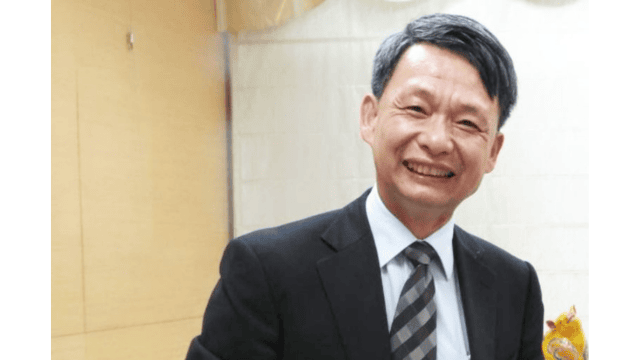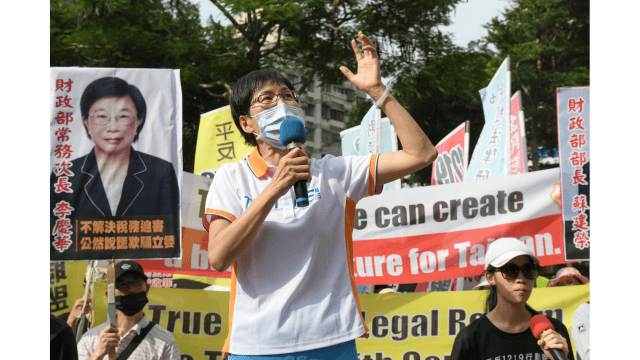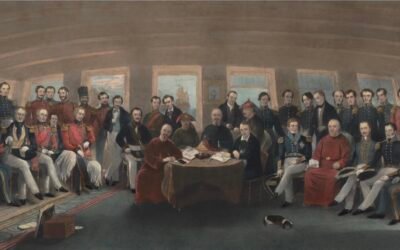August 22 is the International Day Commemorating the Victims of Acts of Violence Based on Religion or Belief. Why a new International Day Against Judicial Persecution by State Power is needed.
by Karolina Maria Kotkowska*
* A paper presented at the webinar “International Forum on the 1219 Incident, The Truth That the Taiwanese Government Refuses to Face: Persecution and Violations of Tai Ji Men’s Freedom of Religion or Belief Enter Their 29th Year,” Taipei, December 19, 2024.

On December 19th, 2022, Dr. Hong, Tao-Tze, the Grand Master (Shifu) of Tai Ji Men, proclaimed December 19 as the International Day Against Judicial Persecution by State Power.
Tai Ji Men is a spiritual group devoted to qigong, practicing martial arts, and self-cultivation. This day is a follow up to the initiative of the United Nations from 2019, when August 22 was designated as the International Day Commemorating the Victims of Acts of Violence Based on Religion or Belief. This day of observance was established by the UN General Assembly in 2019 in response to the increase in violence against individuals and groups because of their faith or belief.
This day aims to raise awareness among the international community about the need to combat religiously motivated violence, but also to promote tolerance and the protection of human rights. This is done in several ways, including commemorating the victims of violence, raising awareness of the problem, encouraging actions to counter violence at the local, regional, and international levels, and promoting dialogue between different religions and worldviews, thus eliminating the various types of prejudices that can lead to violence.
The most obvious examples of violence based on religion are those that arise from conflicts between different faiths or are the result of various prejudices. Much less common, but often equally or more harmful to religions, are acts of institutional or political violence. The problem is not represented by beliefs that are controversial in the eye of another group (although such arguments are also used instrumentally), but, for example, by ideological incompatibility or lack of support for the ruling party.
Why was December 19 proclaimed the International Day Against Judicial Persecution by State Power? Because it is a very sad anniversary. In 1996, in Taiwan a political purge against religious groups took place. One of the groups attacked was Tai Ji Men. Media slander, before the trial even began, victimized the members and their families. On this day, in 1996, the life of Tai Ji Men took a very bad turn.

After initiating an investigation against Tai Ji Men based on unfounded reports in November 1996, the findings of the Prosecutor’s Office revealed no illegal activities or victims, leading to the case’s closure at that time. Despite this, on December 19, Prosecutor Hou Kuan-Jen mobilized hundreds of armed police officers to raid all branches of the Tai Ji Men Qigong Academy, along with the private homes of several Tai Ji Men dizi (disciples). The Grand Master of Tai Ji Men, Dr. Hong, his wife, and two dizi were then unlawfully detained for months.
While the physical violence was obvious in this case, there have been other types of violence that were less blatant but went on for years. The case of Tai Ji Men is extreme in this respect, because the continuation of violent actions based on unfairly imposed and enforced taxes continues to this very day. It has been 28 years since 1996, and the violence, in its various forms, has not abated. The Taiwanese government has not yet conducted a thorough review to establish accountability for past actions, allowing the ongoing persecution of certain groups, including Tai Ji Men, to continue and making it impossible for them to obtain justice. It is hard to believe that after so many years of democratic rule, spiritual movements in Taiwan may still face significant hurdles due to bureaucratic harassment—highlighting a systemic issue that hinders their freedom of religion or belief.
This ongoing problem harms Taiwan’s reputation when it comes to protecting the people’s right to freedom of religion or belief, which is a fundamental responsibility of all countries. It is important for the Taiwanese government to acknowledge these issues, take action to address their root causes, and make real efforts to correct the injustices faced by the affected communities.

Since 1999, Dr. Hong is leading an initiative of the “World Love and Peace Cultural Goodwill Group,” which has traveled to more than a hundred countries around the world, promoting a culture centered on the principles of love and peace, with a focus on fostering global understanding and harmony. As part of this mission, Tai Ji Men has organized special ceremonies featuring the “Bell of World Peace and Love,” where leaders from diverse nations and fields are invited to participate.
Even in the face of violence in their own country, the dizi (disciples) of Tai Ji Men respond to this violation of their basic human rights solely through peaceful means. Instead of allowing this culture, rooted in conscience and peace, to flourish and spread, Taiwanese bureaucracy hinders these positive initiatives, ultimately harming not only such groups but also itself. There is no doubt that this issue needs to be addressed, and far too much time has already passed without the necessary changes being made.

Karolina Maria Kotkowska is an Assistant Professor in the Centre for Comparative Studies of Civilizations, Jagiellonian University, Kraków, Poland. She holds PhD in Philosophy and works on her PhD in Sociology. She specializes in New Religious Movements and Western Esotericism in Central and Eastern Europe.



